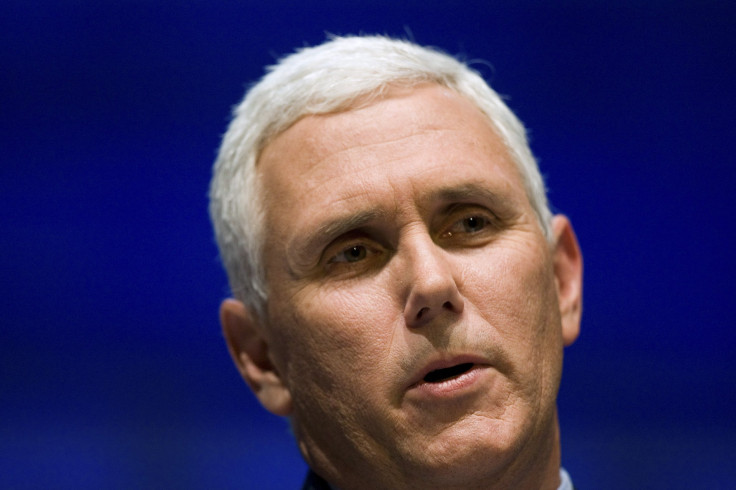Mike Pence President 2016: After Religious Freedom Restoration Act, Does He Become A Credible Candidate?

He was a virtual unknown outside of his home state until Tuesday, but now Indiana Gov. Mike Pence, long considered a potential dark horse candidate for president in 2016, is being viewed as a hero to social conservatives across the country for signing the Religious Freedom Restoration Act last week. But even with his newfound recognition, it will be challenging for Pence to take advantage of his moment in the national spotlight.
If he were to run, Pence would be competing with other social conservatives in the Republican field with strong national organizations that the Indiana governor has yet to build up. And even if he were successful, he would still have to appeal to general election voters who approve of same-sex marriage at a much higher clip than his conservative base.
“Within the Republican Party, [the religious freedom law] probably adds to his luster because he’s made the right enemies in their view,” said Larry Sabato, director of the Center for Politics at the University of Virginia. “He can certainly use this notoriety if he wanted to, but there’s a flip side to this, and this has not been good for Mike Pence in a general election. Suddenly he’s become a controversial, divisive figure.”
A number of businesses and organizations have threatened to boycott Indiana in response to the law, while potential 2016 Republican presidential candidates, including former Florida Gov. Jeb Bush and Sens. Ted Cruz of Texas and Rand Paul of Kentucky, defended Pence. The law states that government can’t intrude on the religious beliefs of a person or business, and critics contend it opens the door to discrimination against gays in Indiana, even though same-sex marriage is now legal there by court order.
While Pence has found support for the bitterly contested law among fellow conservative Republicans, he won't be able to build enough of a base to become a formidable presidential contender, according to Jordan Lieberman, a political consultant with the online ad targeting platform Campaign Grid. “He will raise money off of this and he can capitalize off this movement, but even the primary Republican establishment has moved off the homosexual agenda,” Lieberman said, adding that fiscal conservatives will judge the law by whether it slows the flow of investment dollars to Indiana. “I think at some point conservatives will see that this will cause serious economic damage. He strengthened his credibility among conservatives, but he’s done serious damage to the establishment that cares less about marriage and more about the economy.”
Pence has been coy about his desire to run for president, though his advisers have said he could easily be persuaded to enter the 2016 race. “I believe in servant leadership, and the servant always asks, ‘Where am I needed most?’ ” Pence told the Washington Post late last year, using Christian terminology. “For me, public service is a calling, and ultimately, my family will approach it from that perspective — prayerfully, carefully, with humility and with a servant’s heart.”
The likely Republican field already is plenty crowded even without Pence, with roughly a dozen contenders expected to join Cruz as a declared candidate. Some already have bases of support among the tea party wing that Pence would also have to win over, including Cruz, former Arkansas Gov. Mike Huckabee, retired neurosurgeon Dr. Ben Carson, ex-Pennsylvania Sen. Rick Santorum and Wisconsin Gov. Scott Walker. And Pence doesn’t have the nationwide donor list that Huckabee and Santorum have from previous presidential runs.
“All there is with Mike Pence is a lot of speculation,” Sabato said. “There’s no real attempt to put a national organization together, nor has there been a real attempt to contact loads of major donors, and time’s a-wasting.”
© Copyright IBTimes 2024. All rights reserved.






















